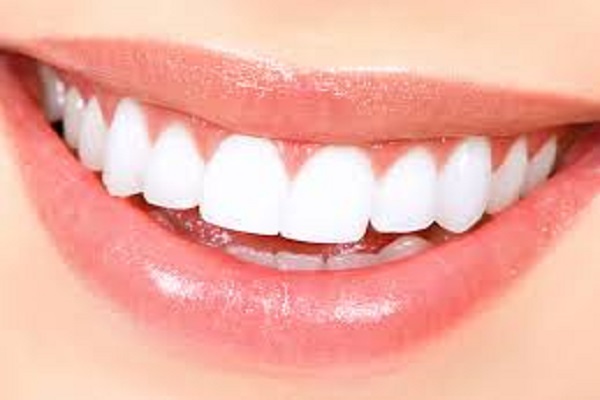Tooth enamel, the hard outer layer of teeth, is essential for maintaining oral health. It acts as a barrier against decay, sensitivity, and wear. While many factors contribute to enamel health, one nutrient plays a crucial role: vitamin D. This article explores how vitamin D impacts tooth enamel, its sources, and the importance of maintaining adequate levels for optimal dental health.
What is Tooth Enamel?
Tooth enamel is primarily composed of hydroxyapatite, a crystalline calcium phosphate that gives teeth their strength and hardness. Enamel protects teeth from various external threats, including bacteria, acids from food and beverages, and physical wear. However, enamel cannot regenerate; once it is lost, it can lead to increased sensitivity, cavities, and aesthetic concerns. This makes it crucial to adopt a holistic approach to dental care, including proper nutrition.
The Importance of Vitamin D
Vitamin D is a fat-soluble vitamin that plays several vital roles in the body, including promoting calcium absorption, supporting immune function, and regulating mood. One of its most critical functions is its influence on bone and tooth health. Vitamin D is essential for the development and maintenance of healthy bones and teeth, as it helps the body absorb calcium and phosphate, two minerals vital for enamel health.
How Vitamin D Supports Tooth Enamel
- Enhancing Calcium Absorption
- Vitamin D significantly increases the absorption of calcium in the intestines. Calcium is a primary mineral found in tooth enamel, and sufficient levels are necessary to maintain its strength and integrity. Without adequate vitamin D, the body may struggle to absorb enough calcium, leading to weakened enamel and an increased risk of dental issues.
- Regulating Phosphate Levels
- In addition to calcium, vitamin D also helps regulate phosphate levels in the body. Phosphate, like calcium, is a critical component of hydroxyapatite, the mineral that makes up tooth enamel. Proper balance between calcium and phosphate is essential for enamel remineralization and overall dental health.
- Supporting Immune Function
- Vitamin D plays a key role in supporting the immune system, which is vital for oral health. A strong immune response can help combat harmful bacteria in the mouth that contribute to tooth decay and gum disease. By reducing inflammation and promoting a healthy oral environment, vitamin D can indirectly support the health of tooth enamel.
- Promoting Mineralization
- Studies suggest that vitamin D can influence the process of remineralization, where minerals are redeposited in enamel after being lost. Adequate levels of vitamin D may enhance this process, helping to repair early signs of enamel erosion and protect against further damage.
Sources of Vitamin D
Maintaining adequate vitamin D levels is essential for enamel health. Here are some sources of vitamin D to consider:
- Sunlight Exposure
- The body can synthesize vitamin D when exposed to sunlight. Spending 10 to 30 minutes outside several times a week can help boost vitamin D levels, depending on skin tone, location, and time of year. However, it’s important to balance sun exposure with skin protection to reduce the risk of skin cancer.
- Dietary Sources
- Incorporating vitamin D-rich foods into your diet can help maintain adequate levels. Foods high in vitamin D include:
- Fatty Fish: Salmon, mackerel, and sardines are excellent sources.
- Egg Yolks: Eggs contain small amounts of vitamin D.
- Fortified Foods: Many dairy products, plant-based milk alternatives, and cereals are fortified with vitamin D.
- Supplements
- If you struggle to get enough vitamin D from sunlight and food sources, supplements can be an effective way to boost your levels. Vitamin D3 (cholecalciferol) is generally recommended for optimal absorption.
Recommended Daily Intake
The recommended daily intake of vitamin D varies by age, sex, and life stage. The general guidelines are as follows:
- Infants (0-12 months): 400 IU (10 mcg)
- Children (1-18 years): 600 IU (15 mcg)
- Adults (19-70 years): 600 IU (15 mcg)
- Adults (71 years and older): 800 IU (20 mcg)
It’s essential to consult with a healthcare professional to determine the right dosage for your specific needs.
The Consequences of Vitamin D Deficiency
A deficiency in vitamin D can have several negative impacts on oral health, including:
- Weakened Enamel: Insufficient vitamin D may lead to reduced calcium absorption, weakening tooth enamel and increasing the risk of cavities.
- Increased Risk of Gum Disease: Vitamin D deficiency can impair the immune system, making the gums more susceptible to infections and diseases.
- Developmental Issues: In children, a lack of vitamin D can lead to dental issues, including enamel hypoplasia, where enamel doesn’t form properly, resulting in weak and discolored teeth.
Conclusion
Vitamin D plays a crucial role in maintaining healthy tooth enamel and overall dental health. By enhancing calcium and phosphate absorption, supporting immune function, and promoting remineralization, adequate levels of vitamin D are essential for protecting enamel and preventing dental issues. Incorporating sunlight exposure, vitamin D-rich foods, and supplements into your routine can help maintain optimal levels. Prioritizing vitamin D is a proactive step toward achieving and maintaining a healthy, beautiful smile.



